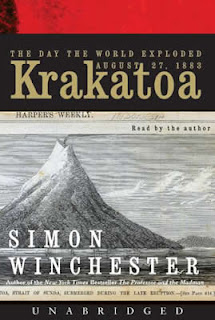 In the later years of the 19th Century, and the early decades of the twentieth, right-wing politicians led campaigns full of prejudice, lies and racism aimed at the Jewish immigrants living and working in London's East End. The editorials and front pages of today's newspapers and tabloids and politician's speeches are an eerie echo of this statement from the past
In the later years of the 19th Century, and the early decades of the twentieth, right-wing politicians led campaigns full of prejudice, lies and racism aimed at the Jewish immigrants living and working in London's East End. The editorials and front pages of today's newspapers and tabloids and politician's speeches are an eerie echo of this statement from the past"Their [Jews] alien looks, habits and language combined with their remarkable fecundity, tenacity and money getting gift, make them a ceaseless weight upon the poor amongst whom they live...truth compels the sentiment, that wherever the foreigner comes in any numbers, the neighbourhood in which he settles speedily drops in tone, character and in morals... Their very virtues seem prolific of evil, when like some seed blown by the wind, they fall and fructify on English soil"
The Jews who came to London in their thousands in the early part of the 20th Century fled the most vile conditions in Eastern Europe. For Jews, life under the Tsar was one of destitution, racism and regular pogroms. Violence was common, as were systematic attempts to destroy Jewish culture and traditions. It's no wonder that so many fled to Britain, with it's supposed traditions of compassion and freedom. Rarely did they get the welcome they hoped for.
Arrival in the East London docks meant abuse and poverty. If you had any wealth left after the struggle to cross Europe and bribe your way out of Russia, you soon lost it to the greedy landlords and business-men that haunted the East End. If you found a job - working in appalling conditions, for 10, 11 or 12 hours making clothes or shoes in a sweatshop, you wages barely paid for the leaking, filthy, overcrowded hovel that was supposed to be home.
The other side to this picture of despair was the brave attempts to fight back - against anti-Semitism of course, but also the struggle for shorter working days and better conditions and William Fishman's classic work, just republished, documents the struggles of ordinary people to improve their lives. Fishman paints brilliant portraits of the men and women who led the struggles, strikes and attempts to build Trade Unions, often in the face of incredible hostility. Names like Rudolf Rocker, Aaron Lieberman and many others echo down to today as another generation of immigrants struggle against oppression and racism.
For someone like myself, active in political campaigns in the East End today, this book is an inspiration. The streets where the Jewish anarchists and socialists met, planned and debated are the same ones where radicals still met today. The times have changed but the campaigns seem very similar, as do the arguments about the way forward.
There can't be many radicals alive today in Whitechapel, Poplar or Tower Hamlets generally that wouldn't give their eyeteeth to have been at the rally, whose flyer is reproduced in the book. On Nov 1st 1890, a mass meeting gathered in Mile End to "protest against the inhuman treatment and persecution of Jews in Russia". Speakers included several MPs, William Morris, Eleanor Marx, Felix Volkhovsky, Prince Kropotkin and many others.
Like so much of the radical tradition in Europe at that time, the Jewish anarchists in the East End didn't survive the repression and ideological confusion of the First World War. But the struggles then left a legacy that went beyond a simply Jewish tradition, but means that we can justly view the East End as somewhere men and women, Jew and gentile, black and white have fought for a better world many times in the past, and continue to do so today.
Related Reviews
Fishman - East End 1888
Branson - Poplarism 1919-1925
Piratin - Our Flag Stays Red
Marriott - Beyond the Tower: A History of East London


